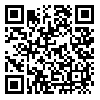Volume 25, Issue 2 (2023)
JAST 2023, 25(2): 391-401 |
Back to browse issues page
Download citation:
BibTeX | RIS | EndNote | Medlars | ProCite | Reference Manager | RefWorks
Send citation to:



BibTeX | RIS | EndNote | Medlars | ProCite | Reference Manager | RefWorks
Send citation to:
Zamani Mazdeh F, Chalipour A, Salami F, Amini M, Adli H, Rostami A, et al . Rapid Determination of Ethanol in Non-Alcoholic Malt Beverage by ATR-FT-IR Spectroscopy and Headspace Gas Chromatography Confirmation. JAST 2023; 25 (2) :391-401
URL: http://jast.modares.ac.ir/article-23-26315-en.html
URL: http://jast.modares.ac.ir/article-23-26315-en.html
F. Zamani Mazdeh1  , A. Chalipour2
, A. Chalipour2  , F. Salami1
, F. Salami1  , M. Amini3
, M. Amini3  , H. Adli1
, H. Adli1  , A. Rostami1
, A. Rostami1  , S. Rashidi Germi2
, S. Rashidi Germi2  , M. Nobahari Quchan Atigh1
, M. Nobahari Quchan Atigh1  , M. Hajimahmoodi
, M. Hajimahmoodi  4
4
 , A. Chalipour2
, A. Chalipour2  , F. Salami1
, F. Salami1  , M. Amini3
, M. Amini3  , H. Adli1
, H. Adli1  , A. Rostami1
, A. Rostami1  , S. Rashidi Germi2
, S. Rashidi Germi2  , M. Nobahari Quchan Atigh1
, M. Nobahari Quchan Atigh1  , M. Hajimahmoodi
, M. Hajimahmoodi  4
4
1- Drug and Food Control Department, Faculty of Pharmacy, Tehran University of Medical Sciences, Tehran, Islamic Republic of Iran.
2- Food and Drug Administration, Tehran University of Medical Sciences, Tehran, Islamic Republic of Iran.
3- Department of Medical Chemistry, Faculty of Pharmacy, Tehran University of Medical Sciences, Tehran, Islamic Republic of Iran.
4- Drug and Food Control Department, Faculty of Pharmacy, Tehran University of Medical Sciences, Tehran, Islamic Republic of Iran. , hajimah@sina.tums.ac.ir
2- Food and Drug Administration, Tehran University of Medical Sciences, Tehran, Islamic Republic of Iran.
3- Department of Medical Chemistry, Faculty of Pharmacy, Tehran University of Medical Sciences, Tehran, Islamic Republic of Iran.
4- Drug and Food Control Department, Faculty of Pharmacy, Tehran University of Medical Sciences, Tehran, Islamic Republic of Iran. , hajimah@sina.tums.ac.ir
Abstract: (886 Views)
Malt beverage is one of the most popular drinks in the world. Recently, consumption of non-alcoholic beverages has expanded significantly in many countries. The permitted level of alcohol in malt beverage is less than 0.5% by Iranian National Standards. In this study, a method was developed to determine ethanol content in malt beverages by FTIR, equipped with Horizontal Attenuated Total Reflectance (H-ATR). Here, the Limit Of Detection (LOD) and Limit Of Quantification (LOQ) were 0.07% and 0.23%, respectively. The correlation coefficient of calibration curve was higher than 0.999. Fifty commercial malt beverages from six brands (five Iranian and one imported brand) and three types of flavored malt beverage (classic, equatorial, and lemon) were assessed. The average detected ethanol amount in samples was 0.19%, varying between 0.00-1.47percent. The results showed that the amount of ethanol in lemon malt drinks was more than the maximum permitted limit; that could be attributed to the usage of ethylene glycol for extraction of lemon flavor.
Article Type: Original Research |
Subject:
Food Science and Technology
Received: 2018/10/20 | Accepted: 2022/05/29 | Published: 2023/03/5
Received: 2018/10/20 | Accepted: 2022/05/29 | Published: 2023/03/5
Send email to the article author
| Rights and permissions | |
 |
This work is licensed under a Creative Commons Attribution-NonCommercial 4.0 International License. |






